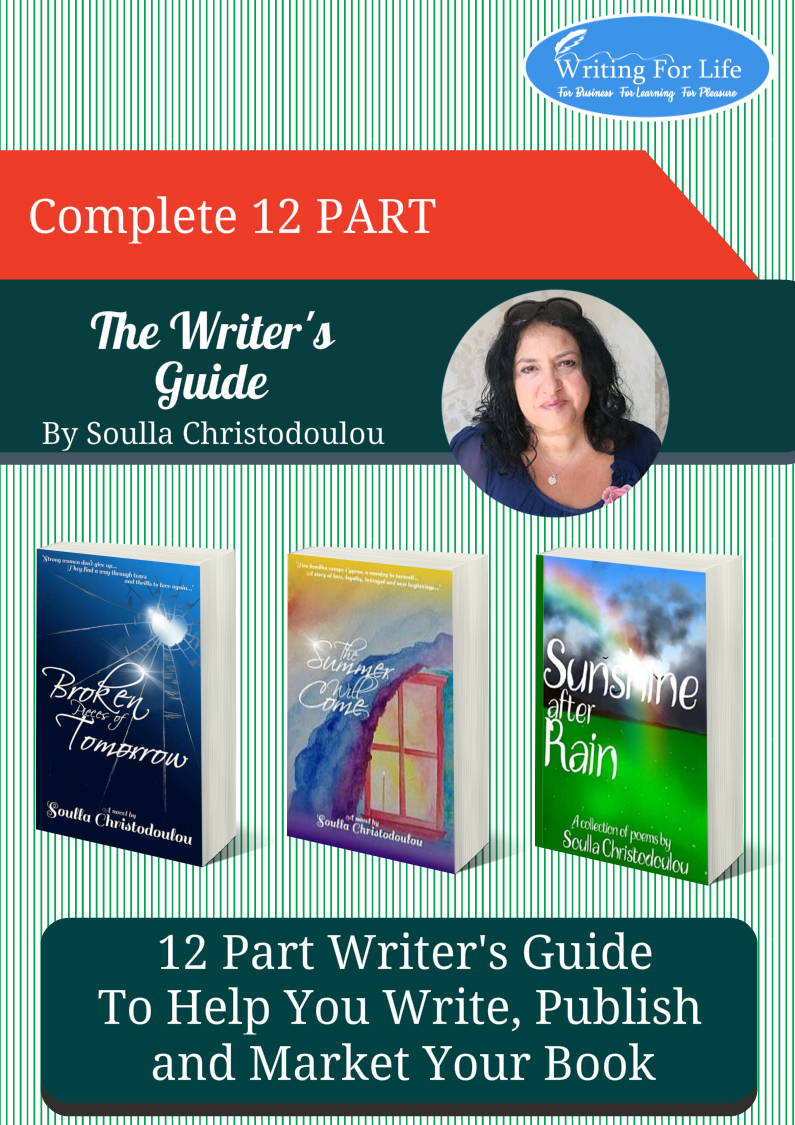Hi! Welcome to this week’s post. I often get asked how I think of writing the stories I write and more recently, what inspired me to write The Summer Will Come.
I’ve had many enriching experiences in my life which have opened my eyes to new things about myself, people and the world. But the seed which influenced the story The Summer Will Come came from somewhere deep within me. My mum recovered from an illness which lasted over three years and brought the very real concept of death and the fragility of life to me. Everything comes to an end and I began to question my life’s purpose. What legacy would I leave behind once I was gone? How would people remember me? What is this life all about?
My Greek Cypriot roots and my sense of wonder and inquisitiveness of what came before filled my heart and my mind. What was life like before I was born, what experiences made my parents the people they are and ultimately have shaped me and the person I am today?
My pique didn’t stop there and I began asking questions of my mum and dad, aunts and uncles, anyone who’d care to answer my barrage of questions; What brought you to England? Why did you leave Cyprus? I listened in awe at their recollections, their tales of escape, of heartache, of leaving behind their loving homeland, their hopes and dreams as their parents came to a foreign land with the intent of building a better life for their families. It was these stories and accounts, scribbled notes in my notebook, which formed the historical thread and the eventual story of plot twists and turns in The Summer Will Come.
In addition, I undertook hours of secondary research. I ploughed through many books, internet sites, photographs, and images.
My Instagram account connected me to the family of one of the EOKA heroes of the time; Evagoras Pallikarides. The family shared precious transcripts and notes and personal stories of the time and this history came alive as I read and imagined what it would have been like to live through the struggles of the time as a freedom fighter.
I have also been privileged enough to have connected with some incredible people to gain insight to their memories, thoughts, emotions and the impact that leaving their home country had on them. One key element repeated itself again and again and that was the determination, resilience, love and passion for traditions and culture that kept them going through their adversity and hardships.
The story revolves around two families, both Greek Cypriot living in different villages in Cyprus, one a small mountain village and another a coastal village in the south of the island. It is 1953; the year of Queen Elizabeth II’s coronation and the start of what becomes a momentous period in the island’s history; a time of turmoil, political conflict and slaughter of innocent people in the name of Enosis (unity with Greece) and freedom from British rule.
The reader is carried through their trials and the final push which forces them to leave their life, the only life they have ever known, to move to London, England. This is primarily a fiction novel set against some of the key moments in the history of Cyprus in the 1950s. It is a book of hope, new dreams, hardship, determination and overcoming adversity at a time when England, too was going through lots of changes.
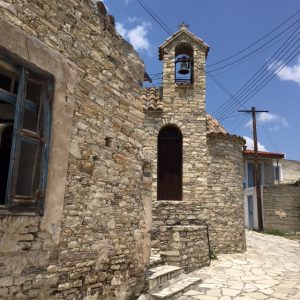
The novel is written as a multi-point of view story – a mother and daughter from one family living in Kato Lefkara, and a father and son from the other family living in Ayios Tychonas; both villages are real villages in Cyprus.
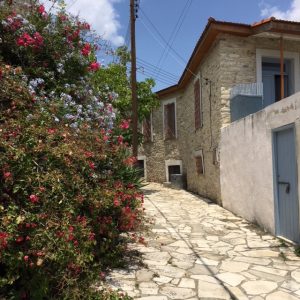 Elena, the daughter, and Christaki, the son, are the key main characters in the story. This helps to explore how the story events and situations are perceived by different generations and through both female and male voice allowing the reader to gain a more rounded experience of all that happens.
Elena, the daughter, and Christaki, the son, are the key main characters in the story. This helps to explore how the story events and situations are perceived by different generations and through both female and male voice allowing the reader to gain a more rounded experience of all that happens.
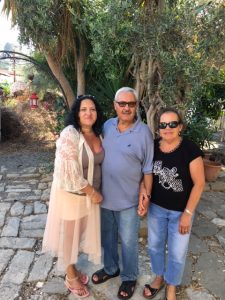 I have visited Cyprus many time over both as a teenager and an adult and I use the sights and smells of village life as I remember them, and as divulged to me through my research to draw the reader into the setting. I was lucky enough to visit Cyprus again earlier this month and with a fresh eye and a deep love in my heart I noticed different things. The stone oven, in which Christaki’s mother bakes bread and cooks thefamily meals, is still hidden in the far corner of the village home’s courtyard in Ayios Tychonas. The church where the Queen’s coronation is celebrated in Kato Lefkara still stands.
I have visited Cyprus many time over both as a teenager and an adult and I use the sights and smells of village life as I remember them, and as divulged to me through my research to draw the reader into the setting. I was lucky enough to visit Cyprus again earlier this month and with a fresh eye and a deep love in my heart I noticed different things. The stone oven, in which Christaki’s mother bakes bread and cooks thefamily meals, is still hidden in the far corner of the village home’s courtyard in Ayios Tychonas. The church where the Queen’s coronation is celebrated in Kato Lefkara still stands.
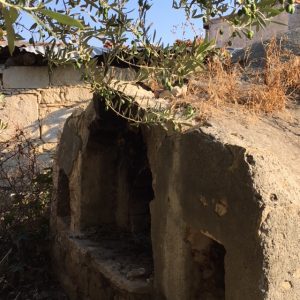 Publishing this book as brought something very special to the book shelves of all those readers interested in Greek Cypriot life and traditions and 1950s Cypriot and British history. Readers who enjoy strong characters, a well-paced plot with realistic yet amazing storytelling will want to read this book. I have cried, laughed and rejoiced with the characters in The Summer Will Come and I know that you will too!
Publishing this book as brought something very special to the book shelves of all those readers interested in Greek Cypriot life and traditions and 1950s Cypriot and British history. Readers who enjoy strong characters, a well-paced plot with realistic yet amazing storytelling will want to read this book. I have cried, laughed and rejoiced with the characters in The Summer Will Come and I know that you will too!
One of the most recent reviews of the book says:
“An excellent read, a story rarely told in public, about what life was life for those Cypriots caught up in the crossfire of the Union with Greece campaign (EOKA) and the British Occupiers. Many who by the 1950s were increasingly impoverished and at the time terrorised by both sides. Shot at by both sides, caught up in bombings, not wanting the colonists in power, but not wanting the violence either. By 1958 the story moves to Britain as an increasing number of Cypriots move to England, in this case London.
Have you ever wondered what immigrants made of London in that period, coming from beautiful towns and villages to this smog ridden and dirty massive metropolis? But nothing is exaggerated here, our heroes suffer culture shock, family tribulations, but they also find new positives in the new life.
To say more would spoil the reading of a very good book, a book I couldn’t put down and read in 3 nights.”
If you’d like to read the book or read some more of the reviews it has received then please go to my Amazon author page here.
And until next time, take care and happy reading!
Soulla xxx

